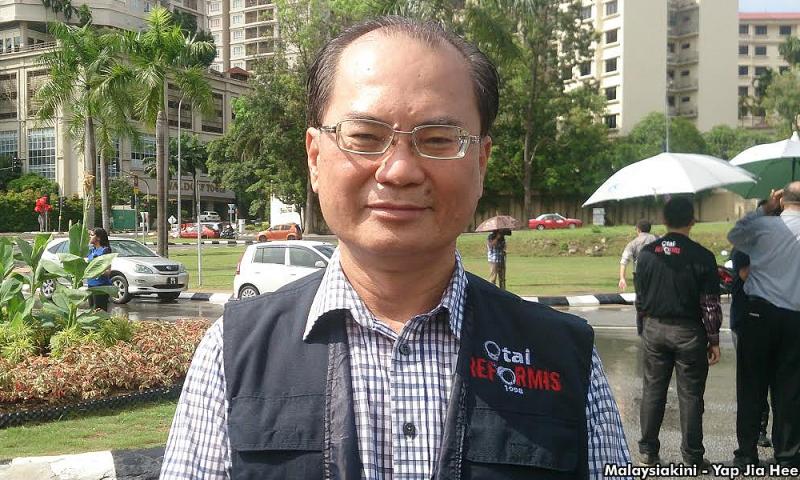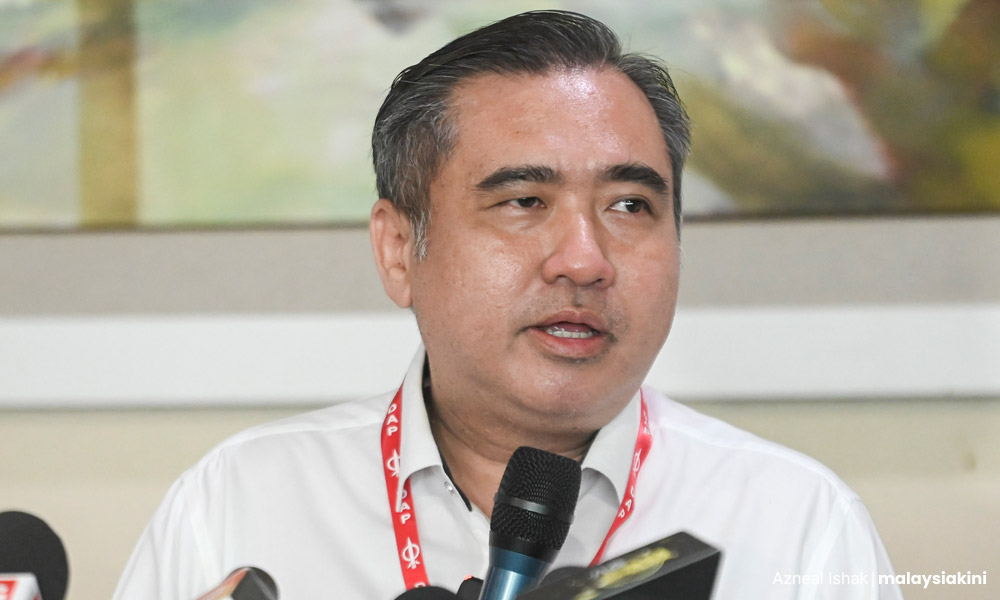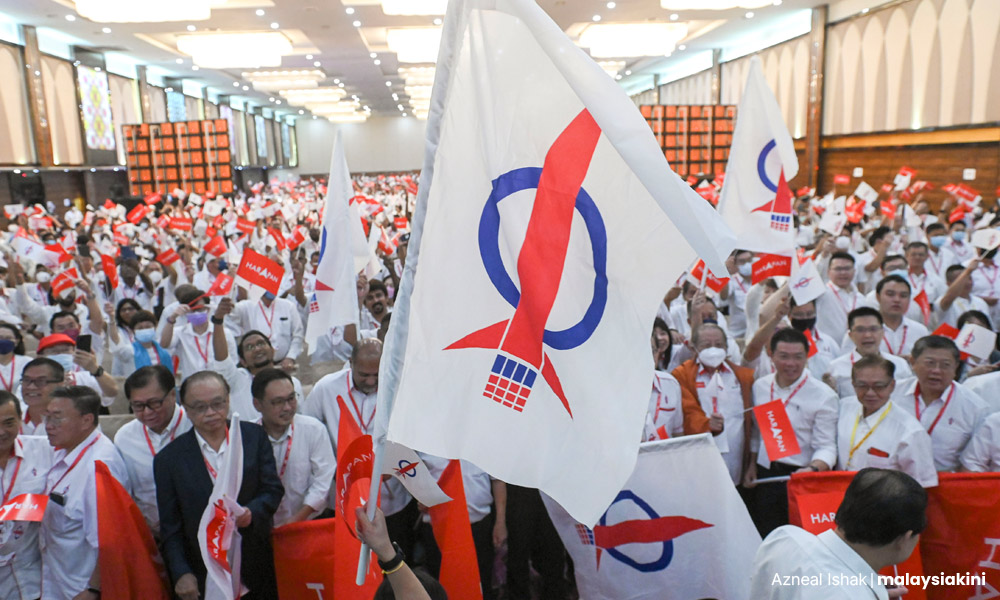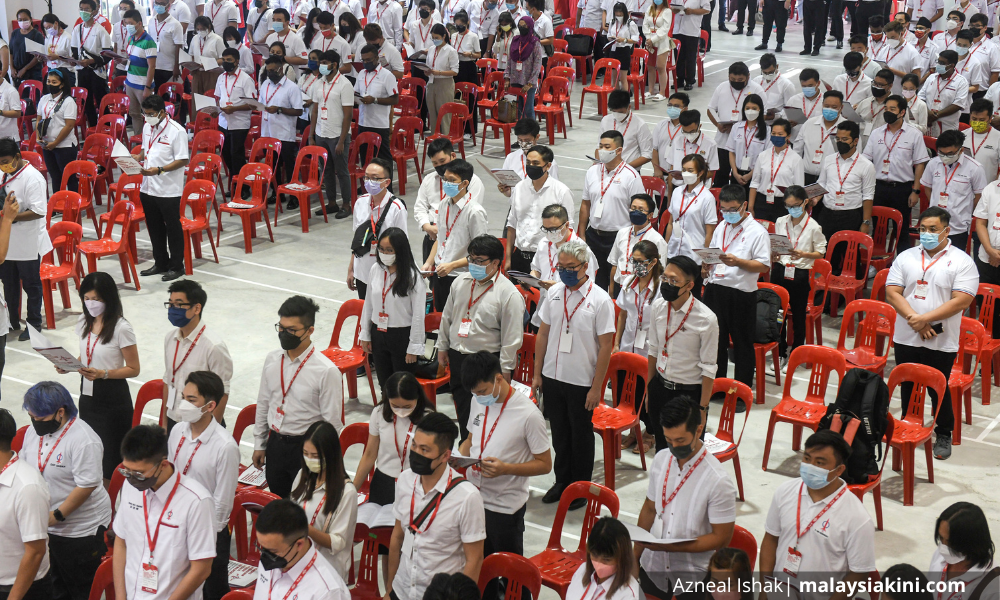
“Toe the line of the leadership or out you go. That's the political reality (or cruelty).”
– Sungai Pelek assemblyperson Ronnie Liu
COMMENT | Well God, or ROS (Registrar of Societies), that is.
The reason for this is that DAP central executive committee (CEC) member Ronnie Liu believes the recent amendment to the party’s constitution, which gives the CEC power to declare that anyone who does not follow directives by the leadership team, to cease being a party member is fascist.
Liu (above) said that he would have “died” many times over because – “If the party has such clauses in the past, I could have been removed as a member on issues I raised or opposed, such as criticism against former prime minister Dr Mahathir Mohamad and Lynas.
“I could have been removed over issues relating to (recognition) Unified Examination Certificate (UEC), Jawi, LTTE (Liberation Tigers of Tamil Eelam) arrests and handover of the premiership to PKR president Anwar Ibrahim.”
Of the proposed clauses, the DAP’s Big Cheese Anthony Loke said, “…. that it had received the vote of all but two representatives present at the congress today, receiving what Loke called ‘99.9 percent’ support.”
To which Liu opined - which explained why so many delegates put up their hands in the special congress on Sunday “against their will', and many simply remained silent so they would not be marked as defiant members.
If this proposed clause is such welcome news, why haven’t political operatives and ordinary members been clamouring to provide talking points to the press and correct Liu, or even offer a different narrative?
Indeed, several party leaders when contacted by the press asked all queries to be directed to Loke. This, of course, is strange. They agreed to the proposed amendment so why not give their reasons for their agreement?

DAP secretary-general Anthony Loke
Why not make their case in the court of public opinion like the way Liu has?
Why not rebut the narrative made by Liu and demonstrate why this clause is needed, a clause mind you, that Liu contends gives more power to the CEC when it comes to disciplining party members.
Loke has made noises in the press leading up to this fiasco in which he claimed that such a clause was needed to ensure party effectiveness - “For example, if there is a motion that we need to oppose but some of our MPs support it, then the party’s effectiveness would be undermined.”
Sounds great but what happens if the motion proposed is not beneficial to the public and MPs who opposed such a motion were doing so because it is the right thing to do or what the public who voted for them expects even if it goes against the party line?
Furthermore, how would it look if the CEC decides to strip someone of their membership because he or she did not toe the party line?
I figure if the party line was something the public supported, this would not be such an issue but what if it was something that was politically advantageous or expedient and the member in question was not going to play ball?
Mind you, I am not saying that party discipline is not important but there is a fine line between party discipline and totalitarian impulses.
Why not make their case in the court of public opinion like the way Liu has?
Why not rebut the narrative made by Liu and demonstrate why this clause is needed, a clause mind you, that Liu contends gives more power to the CEC when it comes to disciplining party members.
Loke has made noises in the press leading up to this fiasco in which he claimed that such a clause was needed to ensure party effectiveness - “For example, if there is a motion that we need to oppose but some of our MPs support it, then the party’s effectiveness would be undermined.”
Sounds great but what happens if the motion proposed is not beneficial to the public and MPs who opposed such a motion were doing so because it is the right thing to do or what the public who voted for them expects even if it goes against the party line?
Furthermore, how would it look if the CEC decides to strip someone of their membership because he or she did not toe the party line?
I figure if the party line was something the public supported, this would not be such an issue but what if it was something that was politically advantageous or expedient and the member in question was not going to play ball?
Mind you, I am not saying that party discipline is not important but there is a fine line between party discipline and totalitarian impulses.

There are many ways to marginalise party members who are disruptive but the reality is that the only voices which truly determine if a party member has committed something so egregious that he or she needs to be kicked out of the party, are voters through the ballot box.
Dissent matters
Some laws, clauses, bylaws or whatever define what a party is. Forget about the personalities involved. If you do not like Liu, Loke or even the DAP, put all that aside for a moment and just think about this clause.
What this clause does is define the kind of elected representative the party offers to voters. What this clause defines is the kind of elected representative you will get if you vote for the candidate.
What this clause defines is how the candidate will be able to carry out his or her functions and how much influence party politics has on his or her agenda.
It also defines what kind of issues the candidate speaks up on even if unpopular and how much his or her voice is muted by the party. In other words, this clause defines if a candidate puts country, ideology or principle above party.
We know how certain political operatives seem to love gag orders. Well, this is essentially a gag order. A gag order that would define how a supposedly democratic party handles dissent.
It also brings up an interesting point. Suppose you have political operatives who are against the party line when it comes to specific issues. Ordinarily, their dissent could lead to practical actions such as voting against or abstaining, besides talking to the press.
With this new clause, all these changes. There could be no dissent or rather a situation where instead of reasoned discourse, the “dissident” could end up provoking the CEC to strip him or her of their membership to prove a point, which ends up as political theatre.
Liu wrote, “In a true democracy, we do not punish or victimise members for holding differing views and opinions. There must be room for dissenting views.”

Which begs the question, what kind of democracy does the DAP want to propagate? A democracy defined by how people toe the party line or a democracy where people can dissent without being ejected from the fold? The former is practised by fascist and communist parties the world over and is not really democracy at all.
If anything, this country needs more democracy and if the DAP cannot handle dissent from within, how exactly are they going to campaign for more democratic norms and principles?
How can the DAP be an effective advocate for democracy when it amends its constitution to silence dissent?
Sorry Liu, God cannot save the DAP. The fate of the party is in the hands of its members and how they react to this determines what kind of democracy they want this country to be.
We get the democracy we deserve. This remains the state of play.
S THAYAPARAN is Commander (Rtd) of the Royal Malaysian Navy. Fīat jūstitia ruat cælum - “Let justice be done though the heavens fall.”

Looks like open dissent is the preferred way to practise democracy in Malaysia
ReplyDelete